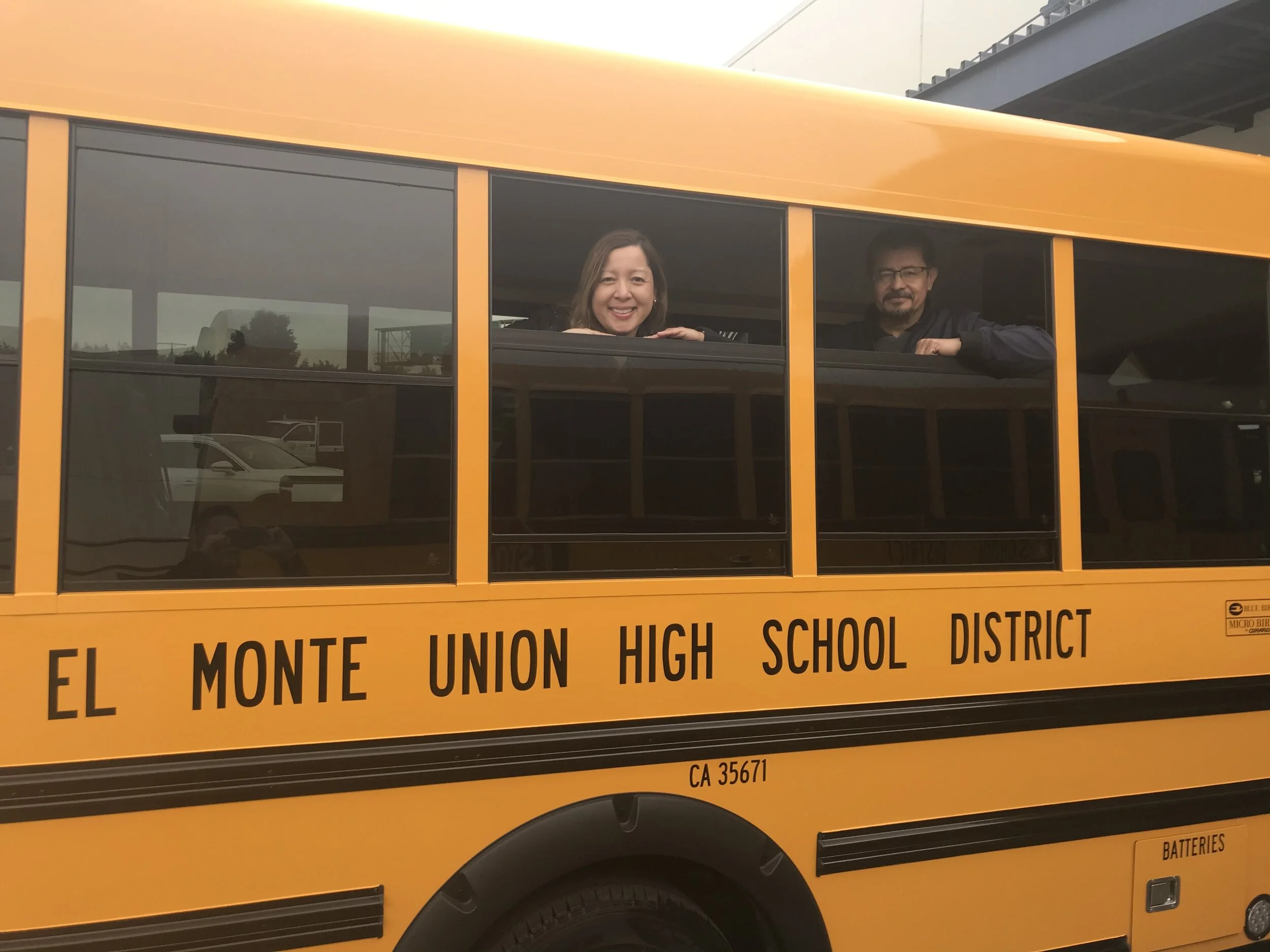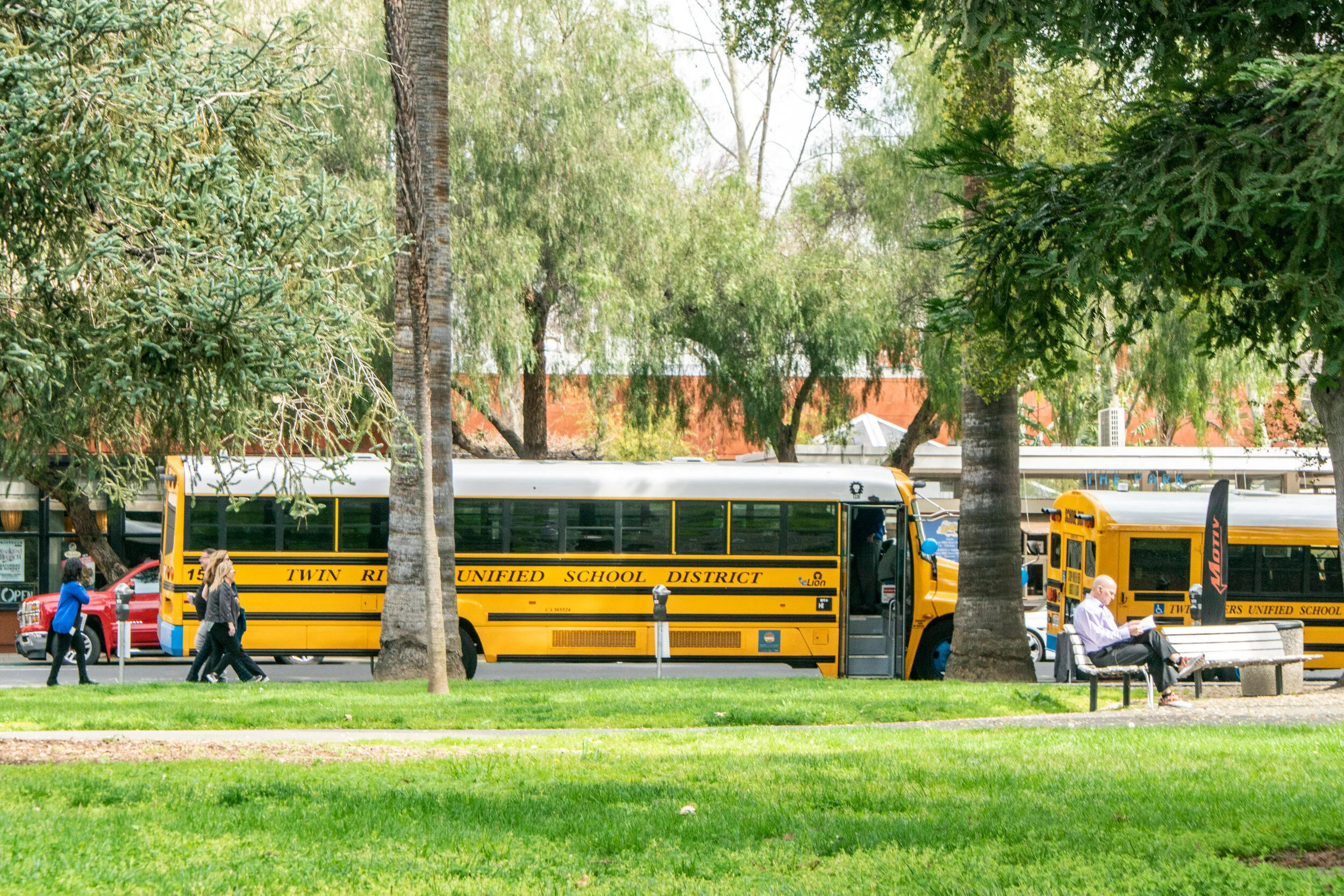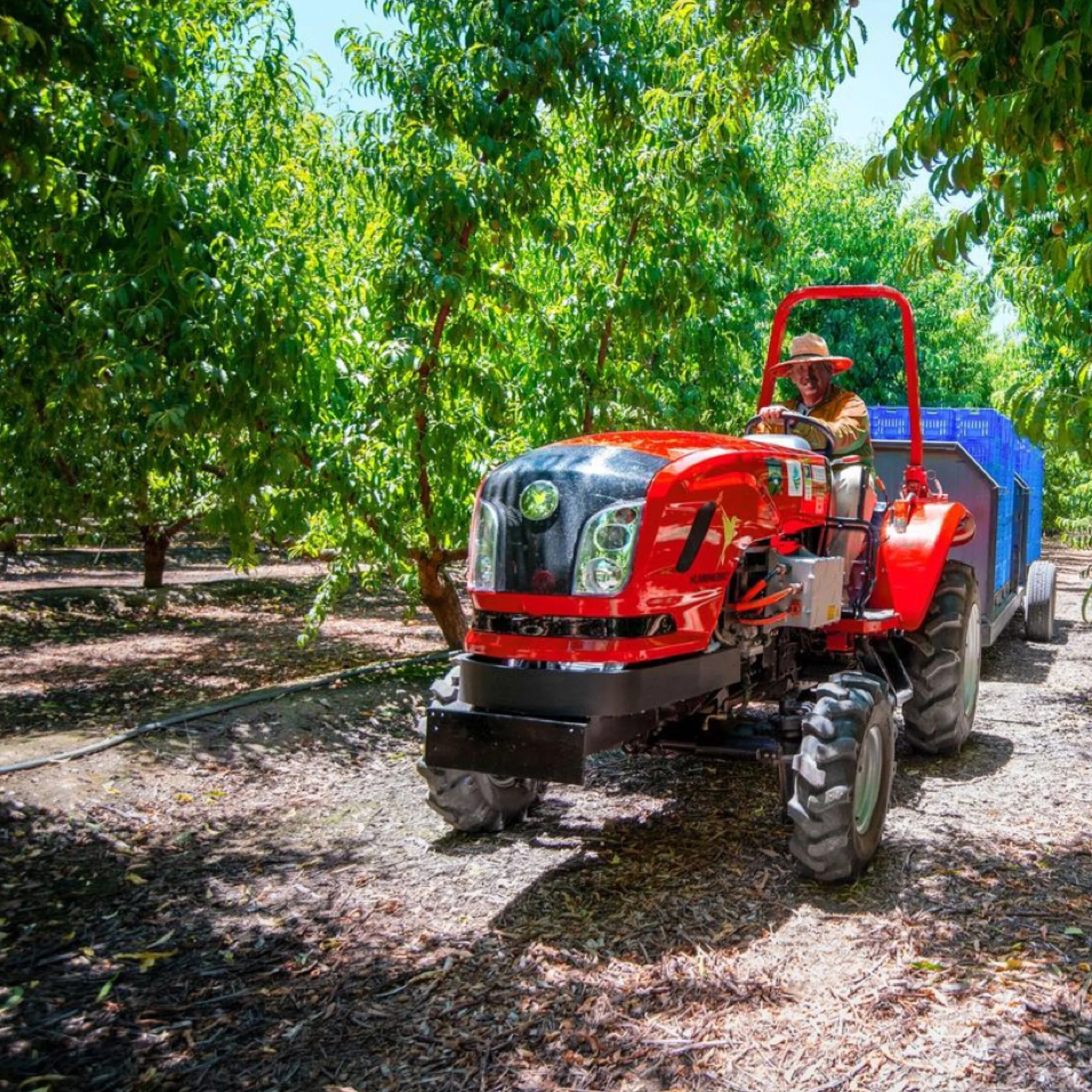In the heart of California, the San Joaquin Valley is a region where agriculture is not just an industry but a way of life for many. CARB’s Funding Agricultural Replacement Measures Emissions Reductions (FARMER) Program funds transformative initiatives that foster the adoption of innovative farming techniques, integrating advanced agricultural technologies, and promote community engagement and has been making monumental steps towards more sustainable agriculture across the valley.
Realizing Carshare Benefits in Priority Populations
Since 2015, the City of Los Angeles (LA), in partnership with the LA Department of Transportation and the Mayor’s Office, has received a total of $4.7 million from CARB’s Clean Mobility Options program for a zero‑emission car share pilot project. This project, known as BlueLA, is operating in 13 underserved communities that face significant air quality burdens and have historically been excluded from environmental benefits. BlueLA provides a clean and affordable mobility option in these communities, which include Downtown, Pico Union, West Lake, and Koreatown.
Over a Decade of Funding Technology Advancement: A Look at Large Scale Truck and Bus Replacement Investments
The Clean Truck and Bus Voucher project, also known as HVIP, has been a key facilitator in achieving California’s long‑term strategy of transitioning its trucking fleet to zero‑emission vehicles (ZEV). This transformation has been a multiyear process, starting with demonstration and pilot projects and moving to regulations combined with incentives.
Funding ZEV Workforce Training and Career Development for Priority Populations
Through the Inclusive, Diverse, Equitable, Accessible, and Local (IDEAL) ZEV Workforce Pilot Project administered by the California Energy Commission and co‑funded by CARB, Fresno City College has offered three high schools in Fresno County the opportunity to introduce their automotive students to ZEV technology. Training was provided in December 2023 for high school teachers at each of the three schools, and they were provided with tools and equipment to offer the new ZEV curriculum starting in spring 2024.
Zero-Emission Technology at Ports Provide Cleaner Air for Vulnerable Residents
The adjacent ports of Long Beach and Los Angeles combined are the largest fixed sources of air pollution in the South Coast Air Basin, one of the most polluted air basins in the United States, in large part because the trucks and equipment used at the ports burn diesel fuel. Recognizing this, the Sustainable Terminals Accelerating Regional Transformation demonstration project was awarded $50 million to replace trucks and equipment with zero‑emission technology. The funding, which comes from California Climate Investments, supports the deployment of 102 pieces of zero‑emission terminal equipment and trucks at seaports across California, including at the ports of Los Angeles and Long Beach. These funds are also supporting the development of new, cleaner tugboats; the deployment of two container vessels with cleaner‑burning engines; and advanced workforce development programs to support sustainable goods movement across California.
Driving Clean Financing Assistance Program
The Community Housing Development Corporation, a community‑based organization in Richmond, received over $6.5 million from California Climate Investments for a pilot project to assist with the purchase of newer, cleaner cars in low‑income households in Sacramento and the Bay Area. The pilot project, known as Driving Clean Assistance Program, provides up to $5,000 for hybrid or plug‑in electric vehicle price buy‑down and up to an additional $2,000 for electric vehicle service equipment. The pilot enables low‑income individuals and families, who would otherwise not qualify for a loan due to credit challenges, to obtain a loan at competitive rates. This transformative initiative includes credit counseling, budget counseling, and financial education.
FARMER, Heavy Duty, Off Road, Tractor Trade Up Projects, San Joaquin Valley
The Funding Agricultural Replacement Measures for Emission Reductions (FARMER) program provides up to 80 percent of funding for agricultural vehicle and equipment replacement and repower projects. Thanks to this program, Jannifer Mytych and Agri‑World Cooperative were approved by the San Joaquin Valley Air Pollution Control District to receive California Climate Investment funds for new tractors to help reduce emissions while maintaining their almond farms.
Reducing Exposure to Air Pollution with Electric School Buses in El Monte
Thanks to $9.8 million from California Climate Investments, El Monte Union High School District will be able to implement their Clean Mobility in Schools project, one of three projects awarded to school districts across California in 2020. These funds will help El Monte Union High School District purchase battery electric school buses and charging infrastructure, energy storage infrastructure, develop an active transportation plan, and much more, across six high schools and one bus garage.
Prescribed Fire Reporting and Air Monitoring in Shasta County
The Shasta County Air Quality Management District is doing its part to restore resilient, carbon‑storing, and wildfire‑resistant forests and protect public health across northern California with help from a $159,000 grant from California Climate Investments through the California Air Resources Board’s (CARB) Prescribed Fire Reporting and Monitoring Program. The program supports state forest management and wildfire resilience goals by providing local resources that improve the prescribed burn planning, smoke monitoring, and air quality data collection. These improvements facilitate the implementation of prescribed burning, while also providing the Shasta County Air Quality Management District and the public better information on smoke in order to protect human health.
Rolling Out the Largest Fleet of Zero-Emission School Buses in North America
With delivery of 10 new Lion Electric all‑electric school buses in December 2020, Twin Rivers Unified School District’s (TRUSD) fleet of 40 zero‑emission buses represents the largest deployment of zero‑emission school buses in North America. Several California Climate Investments programs, including Community Air Protection Incentives, played a crucial role in reaching this major milestone.
Understanding Sources and Health Impacts of Local Air Pollution in South Central Los Angeles
Launched in January 2019, the South Central Los Angeles Project to Understand the Sources and Health Impacts of Local Air Pollution (SCLA‑PUSH) aims to help South Central LA organizations and community residents better understand the state of air quality and health in their community and engage in air monitoring and data analysis to advance community‑driven solutions in air quality policy. The project was awarded $300,000 by the AB 617 Community Air Grant Program and is led by Physicians for Social Responsibility–Los Angeles (PSR‑LA).
Electric Tractor Demonstration Supports Market Development and Pollution Reduction
Project Clean Air, Inc., in collaboration with several partners, is implementing the San Joaquin Valley Electric Tractor Development and Demonstration project. Supported by $1.5 million in California Climate Investments funding, the project’s goals are to design, customize, develop, and test the first all‑electric agriculture tractors with in-field mobile charging supporting electric Class 6 trucks in California. By demonstrating the functionality of this fleet of electric vehicles, this project will help create a market for electric agricultural and freight equipment.














